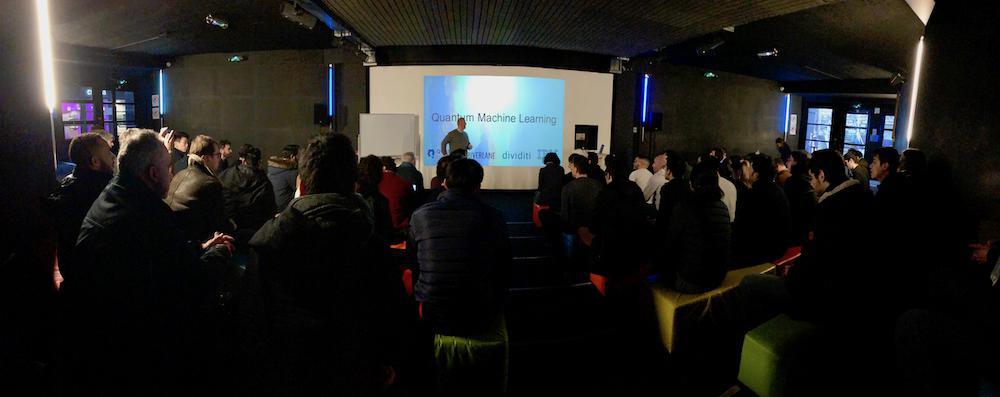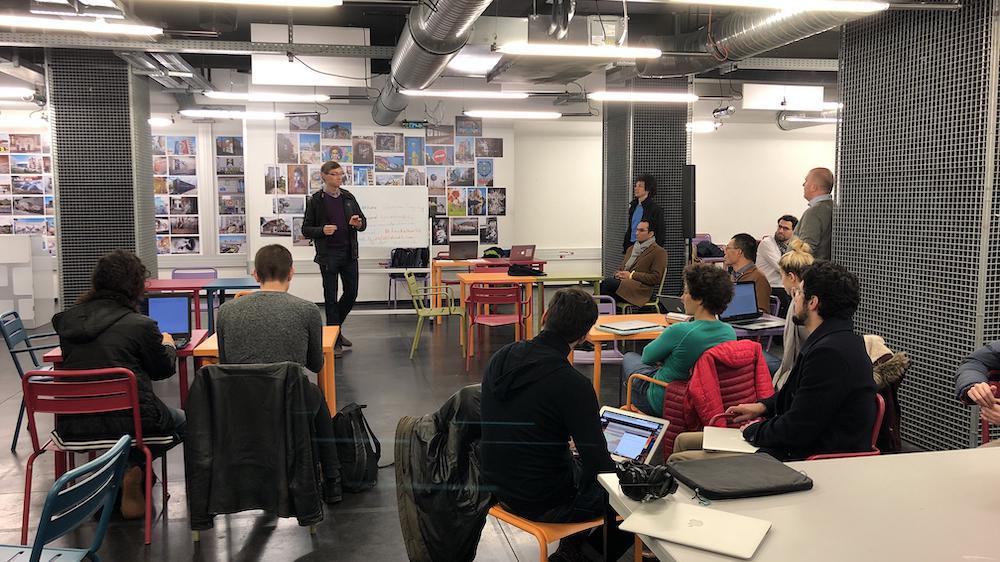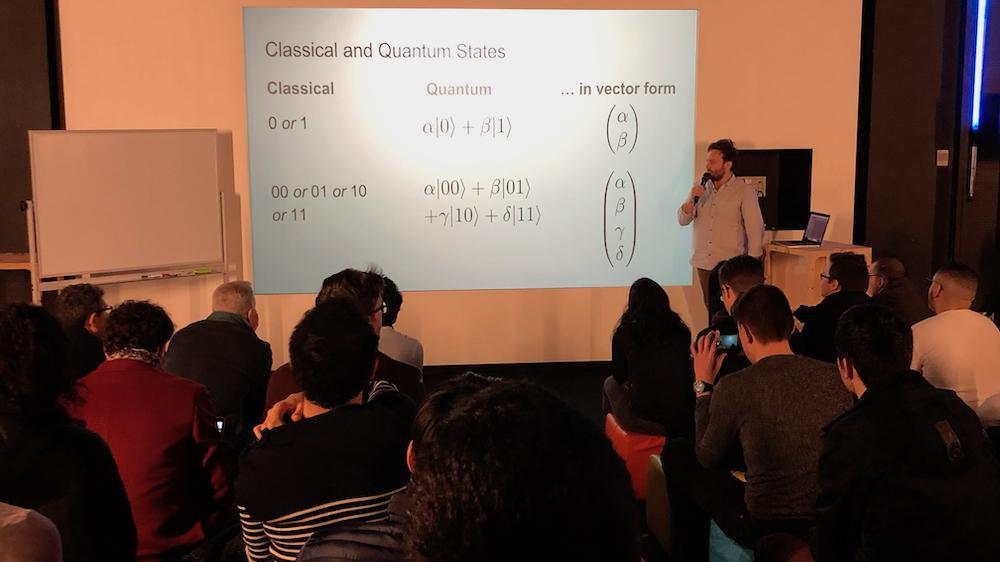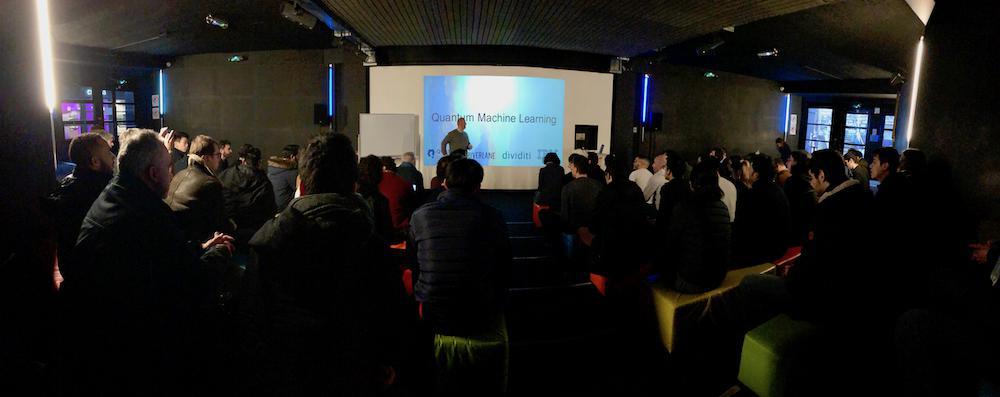
A studious atmosphere, and still very masculine, on this rainy Sunday morning; the participants were waiting for instructions and the formal introduction of the day from 9am.
Quantonation, the organizer, was represented by Christophe Jurczak and Zoé Amblard. The objective of this investment fund dedicated to quantum computer startups is plural: to identify startups and stimulate the creation of a community. "We need to create an ecosystem. This event is an opportunity for us to identify, well in advance, the people who will make up this ecosystem," explains Christophe Jurczak. "We are at the beginning of something; the commercial benefits of quantum computing will not really be noticeable for four to five years".
The supervision of the work and methodological support was provided by Riverlane and Dividiti, two Cambridge companies.
Quantonation, the organizer, was represented by Christophe Jurczak and Zoé Amblard. The objective of this investment fund dedicated to quantum computer startups is plural: to identify startups and stimulate the creation of a community. "We need to create an ecosystem. This event is an opportunity for us to identify, well in advance, the people who will make up this ecosystem," explains Christophe Jurczak. "We are at the beginning of something; the commercial benefits of quantum computing will not really be noticeable for four to five years".
The supervision of the work and methodological support was provided by Riverlane and Dividiti, two Cambridge companies.

The problem submitted to the participants was at the intersection of machine learning and quantum computing. The objective was to develop methods for classifying the different quantum states of a circuit.
Of course, for this work, we still use simulators: IBM's Qiskit programming environment, and traditional Python programming. For the uninitiated, let us remember that quantum computing is still in its infancy. The work and programming carried out is of a low level, close to what traditional computer science did in Assembler (this will remind the older ones of the 80s). It is essentially about learning, much more than making practical applications.
Little suspense in the presentation of results. The teams from Prevision.io (machine learning specialist) and IBM France were the first to complete the proposed challenge.
To learn more about this event:
Of course, for this work, we still use simulators: IBM's Qiskit programming environment, and traditional Python programming. For the uninitiated, let us remember that quantum computing is still in its infancy. The work and programming carried out is of a low level, close to what traditional computer science did in Assembler (this will remind the older ones of the 80s). It is essentially about learning, much more than making practical applications.
Little suspense in the presentation of results. The teams from Prevision.io (machine learning specialist) and IBM France were the first to complete the proposed challenge.
To learn more about this event:











 The French startup ColibriTD has raised €1 million in funding from the Earlybird fund to make quantum computing universally accessible
The French startup ColibriTD has raised €1 million in funding from the Earlybird fund to make quantum computing universally accessible